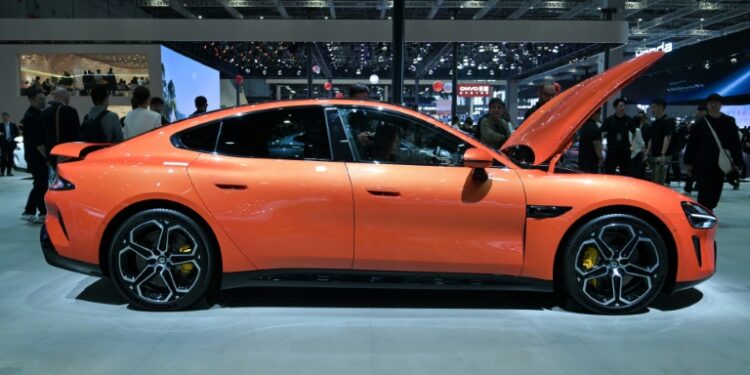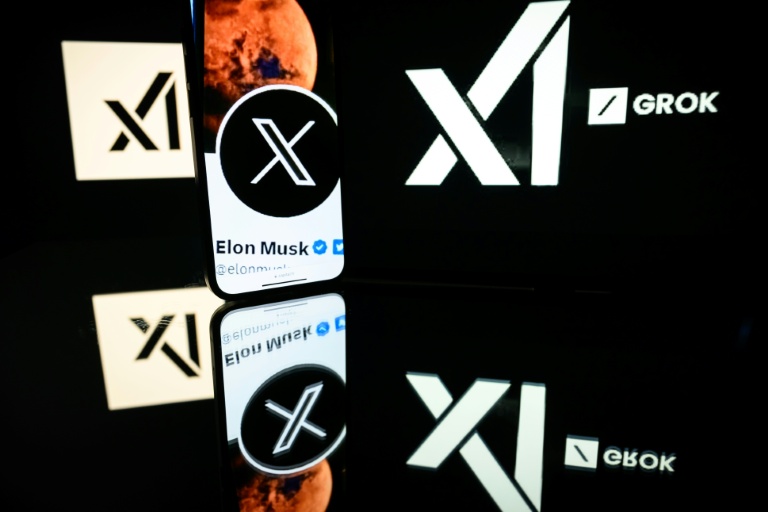Shanghai (AFP) – Intelligent driving features are the new battleground in China’s merciless car market, with competition spurring brands to world-leading advances. However, a recent fatal crash has prompted the government to intervene and put the brakes on this runaway enthusiasm.
Advanced driver-assistance systems (ADAS) assist with tasks ranging from cruise control to parking and collision avoidance, with the ultimate goal of achieving fully self-driving cars. Automakers are pouring significant investment into their development, particularly in the world’s largest car market, China, which skews young and tech-savvy. Giovanni Lanfranchi of EV firm Zeekr noted, “Ten years ago, only 15 percent of customers said they would change cars because of an intelligent cockpit — today it’s 54 percent.”
Almost 60 percent of cars sold in China last year featured level-two ADAS capabilities—where the driver remains in control but receives continuous assistance—according to an AlixPartners report released last week. These features “are emerging as a key competitive tool,” stated the consultancy’s Yvette Zhang. Some companies utilize their own proprietary technology, such as start-up Xpeng and consumer electronics-turned-car company Xiaomi, while others are collaborating with tech giants like Huawei. Such software development is also ongoing in Europe and North America. Nonetheless, a survey of hundreds of global auto executives conducted by AlixPartners found that two-thirds believed China is leading the world in this domain. The report emphasized that “the collection and processing of data, and the availability of software and machine-learning talent” are challenging to replicate.
The technology is not immune to the price wars characteristic of the Chinese market. In February, domestic EV giant BYD announced it would launch its “God’s Eye” driving system across nearly all its cars, including some models priced below $10,000.
Then, a fatal accident in March involving a Xiaomi SU7, which had been in assisted driving mode just before it crashed, raised concerns over safety and the advertising of vehicles as capable of “autonomous driving.” This issue extends industry-wide; for example, Tesla’s US-released “Full Self-Driving” capability is still intended to be used under driver supervision. “The price war has just been so brutal, companies are desperate to find any way to set themselves apart,” said Tom Nunlist, associate director for tech and data policy at Trivium China. “So the question is whether they have been over-promising on features and releasing things as quickly as possible for the sake of competing in this commercial battle.”
China’s Ministry of Industry and Information Technology appears to share similar concerns. Following the crash, it held a meeting with leading automakers and other key players to convey the need for stricter enforcement of safety regulations. The ministry warned manufacturers to rigorously test their systems, “define system functional boundaries…and refrain from exaggerated or false advertising.” Reports indicated that it would also crack down on the practice of enhancing ADAS via remote software updates.
As the significant industry show Auto Shanghai commenced last week, a noticeable shift in focus was evident. “In a sharp U-turn from just two months ago, carmakers have taken a low profile in terms of autonomous driving functions, but are emphasizing safety instead,” noted UBS’ Paul Gong. “Safety is the ultimate premium of new energy vehicles,” read a sign at BYD’s booth. At Xiaomi’s bustling booth, information boards highlighted the SU7’s color options, chassis, and hardware—but AFP noted no mention of ADAS whatsoever. “The autonomous driving function marketing race seems to have halted, at least temporarily,” wrote Gong.
Zhang Yu, managing director of Shanghai-based consultancy Automotive Foresight, commented to AFP that he believed the crash represented “only a setback in marketing terms, which is helpful for a healthy development” of the sector. “This accident was not related to tech or the system itself; it concerns the ignorance of ADAS and the boundaries of autonomous driving,” he added. The technology itself continues to evolve. “That’s why this is becoming a pressing issue because car companies will want to release these features,” said Trivium’s Nunlist. However, a truly autonomous car—level five on the scale—is “certainly not imminent,” he predicted, foreseeing “very hard last-mile problems.”
© 2024 AFP



















